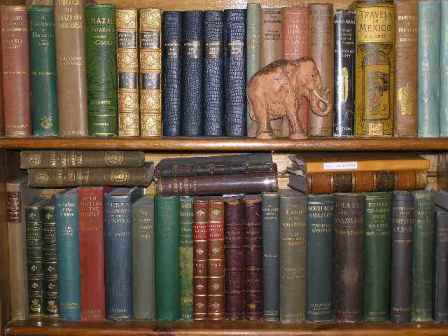
- Details
- Category: Recommended Reading Recommended Reading
- Published: 23 April 2012 23 April 2012
- Hits: 4258 4258

Patrick Deneen has a good read over at Front Porch Republic on the nature of the project of reading the "Great Books". I won't spoil the read, but he makes the observation that while reading the Great Books of the western canon is a good thing, there must be some impetus for reading the Great Books beside simply reading the Great Books. In other words, there must be some sort of anthropology and idea (or theology) of history which can serve as an impetus for reading the Great Books. This is the kind of thing I was getting at in my book, The Gospel and the Mind: Recovering and Shaping the Intellectual Life. Years ago, Frederick Wilhemsen made some similar observations in his Modern Age article, "The Great Books: Enemies of Wisdom" (in the Summer/Fall 1987 issue). For the essay click here. Wilhemsen's point (correct in my view) was that a Great Books program can be a good thing, but one must never forget the goal or telos of education: wisdom. One reads the Great Books as part of an overarching goal of becoming a wise person. Without the goal of wisdom, Great Books programs risk forming persons who are simply able to drop a name, or summarize a concept, but are not wise or virtuous. These persons are simply unwise and foolish name-droppers, not wise persons.